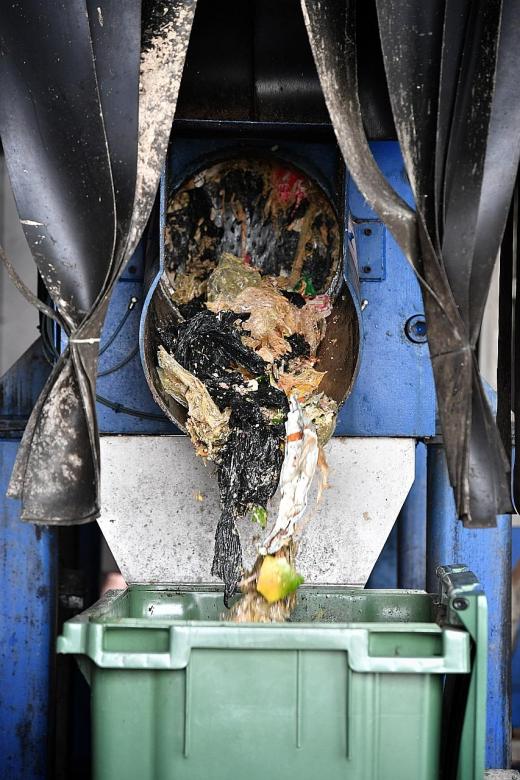Converting sludge and food waste into energy
PUB and NEA trial finds that combining the two waste products triples yield of biogas, a natural fuel
What gets flushed down the toilet daily may be worth its weight in gold. A two-year trial by Singapore's national water agency PUB and the National Environment Agency (NEA) has found a way to ensure people's body waste is not wasted.
Mix what is flushed down the loo (water sludge) with table scraps, and the stomach-churning recipe becomes a potent one for energy.
If scaled up, the biogas produced in the process can power a large portion of Singapore's water treatment plants.
This is a prime example of how Singapore is turning trash to treasure, particularly in view of this year being designated as Singapore's Year of Zero Waste.
The trial, which started in December 2016, involved 40 tonnes of used water sludge (from toilets) and food waste treated at the PUB's facility in Old Toh Tuck Road.
Two truckloads arrive daily from 23 premises across Singapore, including Maju Camp, University Town at the National University of Singapore and food distributor Tian Sheng Fresh Produce.
The sludge and food waste are combined, and will go through what the agencies call "anaerobic digestion", also known as a biological process that breaks down organic materials to produce biogas - a natural fuel that is produced when organic matter reacts with bacteria.
The sludge and food waste were previously digested separately to produce biogas. But when combined, the PUB and NEA found the biogas yield tripled, compared to when used water sludge was digested alone.
Also, the biogas yield from combined digestion was about 40 per cent more than when food waste and water sludge were digested separately at the facility.
The agencies are aiming for this co-digestion process to provide the large amounts of energy required daily to treat used water. They hope it will maximise the recovery of resources from food waste, while letting Singapore take a step towards energy self-sufficiency in the used water treatment process.
But only 16 per cent of food waste, a major waste stream here, is recycled, said Mr Tan Meng Dui, NEA's chief executive. He added the rate is low against Singapore's overall recycling rate of about 60 per cent.
"Positive results from the trial show it is possible to make the used water treatment process in water reclamation plants more energy self-sufficient," said Mr Harry Seah, PUB Assistant Chief Executive, Future Systems and Technology.
Mr Seah added that as a result of the technology's success, the process is likely to be scaled up, in the form of co-locating the facilities of water sludge and food waste treatment at the new Tuas Nexus, which is scheduled to be completed in 2025.
Get The New Paper on your phone with the free TNP app. Download from the Apple App Store or Google Play Store now



